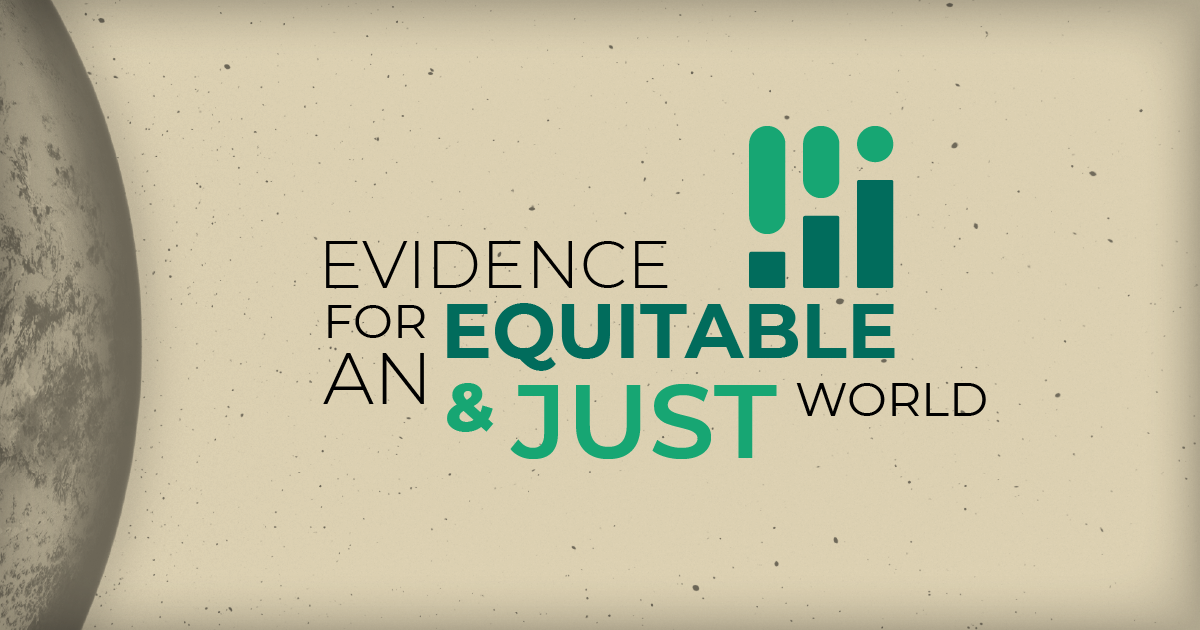Building on decades of mission-driven partnerships to advance public well-being, Mathematica is proud to announce a series of new projects that will propel us on our journey to shape an equitable and just world where evidence drives decisions for global impact. As we enter 2024, we are energized by the opportunity to enhance the work of our partners in confronting challenges such as climate change that have effects across nations and continents. Together with leaders in the public and private sectors, we will use the latest digital tools and technologies to surface evidence-based insights that reduce inequities and improve the health and social well-being of people in the United States and abroad.
The global community is meeting borderless challenges with modern research tools and rigorous evidence.
In an increasingly interconnected world, many of today’s most pressing challenges have global implications. This reality has driven us to expand our global operations to bring evidence to bear on policies and programs in areas including education, energy, agriculture, and health, and we do so with a growing number of partners committed to making an impact in communities around the world.
- A compact between the Millennium Challenge Corporation (MCC) and the Senegalese government seeks to reduce poverty and stimulate economic growth by lowering the cost of energy, while increasing energy access and reliability. Mathematica is carrying out an implementation study and a mixed-methods outcome study for MCC to understand whether the Transmission Project, which is a part of the overall compact, has met its objectives.
- To support family planning services in Pakistan, Senegal, Ethiopia, and other parts of the world, the Bill & Melinda Gates Foundation launched a suite of investments referred to as the Women’s Voice and Local Ownership (WVLO) initiative. Mathematica is partnering with the foundation to co-design a measurement, learning, and evaluation framework for the initiative that can help generate rigorous evidence on how to optimize and scale WVLO’s impact.
- In partnership with Chemonics, Mathematica is providing technical assistance and support to the United States Agency for International Development (USAID) and Nepal’s Education Development Office to improve learning in grades 1–3 by strengthening the capacity of Nepal’s federal, provincial, and municipal governments.
We’re partnering across communities to inform climate action and build resilience with data.
- USAID and ECODIT are partnering with Mathematica to develop a greenhouse gas emissions calculator for agriculture, forestry, and other land-use projects. This publicly accessible online tool will help USAID and its partners synthesize and analyze vast amounts of geospatial data to estimate the climate impacts of planned activities, policies, and investments. The calculator will also inform the design of future programs and solutions to meet emissions reduction targets established in the USAID Climate Strategy 2022–2030.
- After recently working together to develop a monitoring, evaluation, and learning (MEL) strategy, Mathematica is now supporting the Alliance for a Green Revolution in Africa (AGRA) in implementing its central MEL plan. Mathematica will help AGRA set baseline values and review performance targets that will inform and support implementation of AGRA’s updated 2023–2027 strategy. This strategy aims to “catalyze the growth of sustainable food systems across Africa” that support smallholder farmers—particularly women and youth—to strengthen their resilience to climate change and boost their income, food security, and job opportunities.
- Wastewater monitoring serves as a potentially innovative means of early detection and tracking of climate-sensitive infectious diseases, such as diarrheal diseases, in climate-vulnerable settings. To understand the cost-effectiveness of using wastewater monitoring in these contexts, Mathematica, iccdr,b, and the Rockefeller Foundation are conducting a cost-benefit analyses of using wastewater monitoring for early vaccination campaigns against typhoid fever across the refugee population in Cox’s Bazar, Bangladesh.
- Mathematica is providing evidence to guide the Rockefeller Foundation's new climate and health strategy and co-develop their MEL framework. Mathematica will work with the foundation and its partners to develop a Strategic Learning and Impact plan that will outline what success is, how it will be measured, and what strategic learning questions to ask to improve the foundation’s impact and influence.
To achieve a more equitable and just world, we’ll need new sources and methods of research.
Our partners need better information on the root causes of inequities and how to address them. As we embark on a learning journey to better measure and promote equity, we’re playing a more direct role in identifying and removing obstacles that currently prevent far too many people from having a fair opportunity to achieve their potential.
- Mathematica is conducting a comprehensive evaluation, including community engagement and co-creation activities, to inform the equitable and efficient administration of the Social Security Administration’s Ticket to Work program. The program seeks to increase the availability of and access to employment services for adults with disabilities receiving Social Security Disability Insurance and Supplemental Security Income.
- Insights from a Mathematica evaluation of the National Science Foundation’s merit review process will inform the agency’s efforts to ensure the efficacy and equity of decisions made on science research proposals. The evaluation will also help identify potential areas of opportunity to increase participation of underrepresented groups in research.
- Mathematica is helping the U.S. Department of Agriculture’s Food and Nutrition Service expand equitable access to the Supplemental Nutrition Assistance Program (SNAP). This project also seeks to improve the experience of SNAP program staff and participants by incorporating human-centered design principles and cultural competency into the agency’s existing SNAP certification and quality control interview guides.
- The Health Resources and Services Administration has partnered with Mathematica to design and conduct research to demonstrate the value, capacity, and impact of the Health Center Program. Those analyses will measure the program’s progress in improving the health of the nation’s historically medically underserved communities, with a specific focus on expanding access, increasing equity, ensuring quality, and promoting cost-effectiveness.
- The CMS (Centers for Medicare & Medicaid Services) Innovation Center’s latest advanced primary care model, Making Care Primary, focuses on achieving better care, lowering costs, and advancing equity for Medicare and Medicaid beneficiaries. The Innovation Center is working with Mathematica to evaluate the model, which has distinctive features that could reduce health disparities. For example, the model will offer more assistance to organizations with little or no experience in value-based care. It will also engage more diverse organizations in the model, such as small, independent, and rural organizations; federally qualified health centers; and Indian health programs. Finally, the model will also include various requirements related to equity, such as a new equity component in its payment structure, the development of health equity plans, screening for health-related social needs, and a health equity performance measure.
Digital transformation means providing decision makers with useful data in less time and in larger volumes.
Technology continues to change the way we gather, analyze, and use evidence to drive decisions. These technological improvements, combined with the continued growth of evidence-based technical assistance, create partnering opportunities that demand data-driven decision making in near-real time and at scale.
- To help the Administration for Community Living (ACL) advance its mission to maximize the independence, well-being, and health of older adults and people with disabilities, Mathematica is tapping into its proprietary Data Innovation Lab to provide access to data from CMS, conduct quick-turnaround analyses, and execute long-term research that will inform ACL leadership about changing trends in older adults and older adults with disabilities.
- Mathematica and HHS Technology Group are producing new applications for the COVID-19 Research Database, the nation’s largest database of COVID-19 pandemic research. Together, we help commercial health care and life sciences organizations navigate the constantly evolving post-pandemic health care landscape by combining data with predictive modeling to target resources in various ways, including for those suffering with chronic diseases or from COVID-19’s long-term impacts.
- To help the New Jersey Department of Health identify and resolve data quality issues in the state’s Transformed Medicaid Statistical Information System, NewWave and Mathematica are partnering with the state to implement Imersis, the companies’ cloud-based data quality tool. New Jersey is the second state, after Maryland, to improve data quality through Imersis as a first step in a journey all state Medicaid programs are taking to conduct advanced analytics and report with confidence.
- The National Center for Education Evaluation and Regional Assistance has partnered with Mathematica to improve systems, tools, and processes that are essential to the agency’s What Works Clearinghouse. The What Works Clearinghouse is an initiative of the Institute of Education Sciences within the U.S. Department of Education that serves as a central and trusted source of scientific evidence on education programs, products, practices, and policies. As part of the project, Mathematica will ensure the seamless functioning and ongoing improvement of the clearinghouse’s underlying information technology infrastructure.
- The Center for Medicaid and CHIP (Children’s Health Insurance Plan) Services has renewed its partnership with Mathematica to lead the technical assistance and analytic support program for the Medicaid and CHIP Quality Measurement and Improvement Program. Through this work, Mathematica is supporting states to reliably collect, calculate, and report core sets of quality measures that can help improve health care access, quality, outcomes, and equity for children and adults enrolled in Medicaid and CHIP. We are also building states’ capacity for digital quality measures, using alternative data sources to calculate Core Set measures, modernizing Core Sets and other analytic products, and creating the next generation of quality improvement offerings.
As we and our partners in the evidence-building community adapt to evolving technologies and societal challenges, what remains constant is our commitment to improving public well-being. We operate in an increasingly interconnected world where we must strive to ensure that people everywhere have the opportunity to meet their full potential. Working side by side with our partners in 2024 and beyond, that’s how we progress together.


